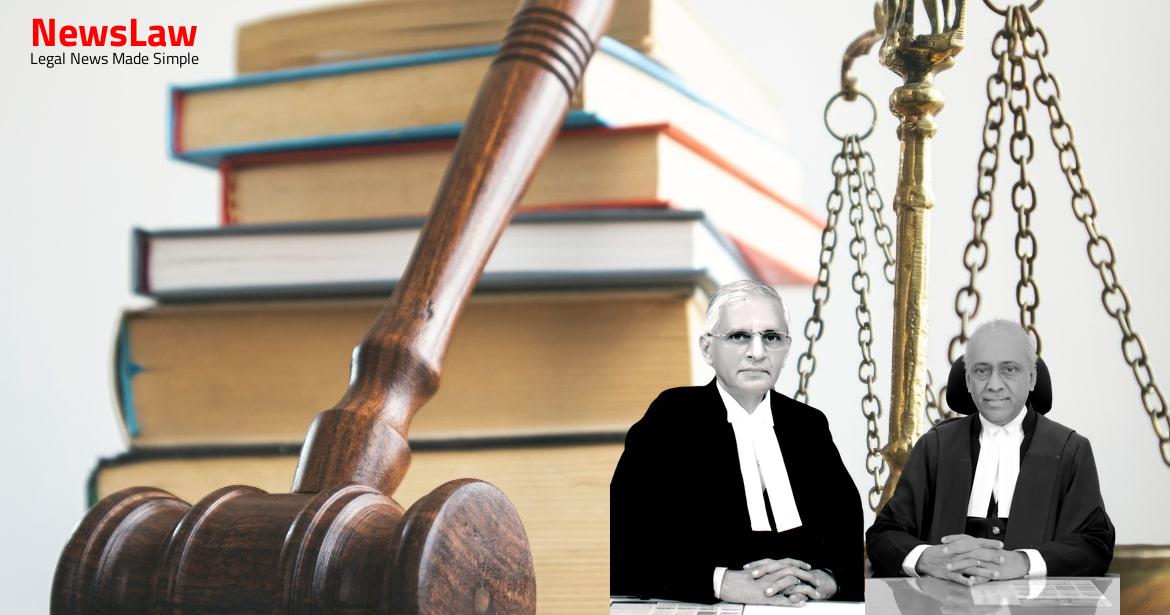Delve into the realm of legal analysis in consent decree modification cases, where courts exercise their inherent jurisdiction to align consent awards with intended compromises. The focus is on preventing substantial injustice in court proceedings, as illustrated by case law precedent. Stay tuned to grasp the nuances of court’s legal analysis in consent decree modifications.
Facts
- The Plaintiff filed a suit against the Defendant for infringement of its Registered Designs.
- Settlement Agreement dated 16.05.2019 was entered into between the parties.
- High Court passed a decree in terms of the Settlement Agreement.
- Reliefs sought by the Plaintiff included restraining the Defendant from manufacturing, marketing, and selling the infringing product.
- Defendant was directed to recall and destroy all products and materials bearing the infringing design.
- Defendant was also directed to disclose relevant information about the sale of the infringing products.
- Cost of the suit was awarded to the Plaintiff.
- Parties referred to mediation by the High Court of Delhi on 18.12.2018.
- Trial Court recalled the order due to compromise petition not being signed by parties as required by proviso to Rule 3 of Order 23 of CPC.
- High Court of Delhi passed an ex-parte ad-interim order of stay on 28.11.2018.
Also Read: Reversal of High Court’s Decision on Auction Sale Confirmation
Issue
- The Defendant is ordered to deliver all materials, including impugned products, bearing the fraudulent design, for destruction.
- Full disclosure of any materials related to the fraudulent design must be made to the Plaintiff.
- Mandatory injunction for the Defendants to recall and destroy all products, marketing materials, and advertising materials featuring the fraudulent design.
Also Read: Interest Compensation Dispute in Property Demolition Case
Arguments
- The learned Senior Counsel argued that the High Court has inherent jurisdiction to correct the terms of a consent award to align it with the intended compromise.
- Reference was made to the judgment in Compack Enterprises India Pvt. Ltd. v. Beant Singh and the Privy Council case of Sourendra Nath Mitra & Ors. v. Srimati Tarubala Dasi to support the argument of the court’s inherent power.
- Emphasis was placed on preventing substantial injustice in court proceedings.
- Respondent obtained a Design registration for the mark ‘FX’ in Class-9 and claiming use since 29.01.1999.
- The correspondence between the advocates of the parties highlighted the instructions for ceasing the use of ‘FX-991ES PLUS’ / ‘FX-991ES’ or any similar mark as per the Settlement Agreement.
- The Respondent emphasized that the Appellant should not use ‘FX-991ES PLUS’ / ‘FX-991ES’ or any deceptively or confusingly similar mark.
- The Respondent argued that there was no fraud or misrepresentation in reaching the Settlement Agreement, and the High Court rightfully dismissed the Application seeking modification of the decree.
Also Read: Legal Interpretation of Extension of Judicial Member’s Term
Analysis
- The Appellant’s application for modification of the decree under Rule 3 of Order 23 of the CPC is being considered.
- A compromise decree creates an estoppel by judgment.
- The Third Party has undertaken to never use the packaging/trade dress of the First Party’s scientific calculator FX-991ES PLUS.
- The Third Party has already recalled products and marketing materials bearing the impugned design.
- The Third Party has ceased the use of the registered designs in question and has taken steps to prevent future use.
- There were proposed alterations during correspondence, and a final Settlement Agreement was signed.
- The compromise in concern was related to ‘FX-991ES PLUS’ as a whole, not just isolated elements like ‘FX’ or ‘991’.
- The Court can entertain an application for modification of a decree if it is vitiated by fraud, misrepresentation, or misunderstanding.
- The compromise in the Banwari Lal case was examined under Section 151 of the CPC.
- The Settlement Agreement in this case was arrived at after detailed consultation and deliberation.
- A compromise arrived at between parties after due consideration and not vitiated by fraud, misrepresentation, mistake, or misunderstanding cannot be reopened.
- A judgment by consent aims to end litigation between parties similar to a judgment by the Court after a legal battle.
- The validity of a compromise can be examined under Section 151 of the CPC.
- In a specific case, the appellant delivered possession based on a compromise, and the validity and genuineness of the compromise were not questioned.
- No doubts were raised regarding the compromise’s validity or genuineness, nor was any evidence presented to show that the decree was affected by fraud or misrepresentation.
- The Third Party undertakes never to adopt, manufacture, sell, offer for sale, advertise, promote, or use in any manner the impugned design or any other design similar to that of the First Party’s registered designs bearing nos. 214283 and 214282, dated 16/01/2008 in Class 18-01.
- The Third Party agrees to never use the packaging/trade dress of the First Party’s scientific calculator FX-991ES PLUS or any similar packaging that is deceptively or confusingly similar to the First Party’s packaging/trade dress for its scientific calculators FX-991ES PLUS.
- The Third Party also undertakes to never adopt, advertise, promote, or use in any manner any goods or services that incorporate the First Party’s FX-991ES PLUS / FX-991ES marks or any deceptively or confusingly similar mark.
- The Third Party confirms ceasing the use of the impugned design and the marks FX-991ES PLUS / FX-991ES and pledges to refrain from any future use.
- A modified Settlement Agreement was communicated, reiterating the undertakings of the Third Party to never adopt, manufacture, sell, offer for sale, advertise, promote, or use the impugned design or any similar design and to never adopt, advertise, promote, or use goods or services that include the First Party’s FX-991ES PLUS / FX-991ES marks.
- Settlement agreement entered into by parties was not a result of misunderstanding or ambiguity, as demonstrated by correspondence between legal experts representing parties.
- Consent decree cannot be modified unless there is a patent or obvious mistake to prevent misuse of modifying consent decrees based on alleged mistakes.
- High Court dismissed Application as it was filed under Section 152 of CPC, but the Court considered the submissions of parties to assess if modification of decree is warranted under the proviso to Order 23 Rule 3 read with Section 151 of CPC.
- No allegations of fraud or misrepresentation against the Respondent.
Decision
- The High Court applied its mind and passed a decree in terms of the Settlement Agreement dated 16.05.2019.
- The judgment of the High Court was upheld and the Appeal was dismissed.
Case Title: AJANTA LLP Vs. CASIO KEISANKI KABUSHIKI KAISHA D/B/A CASIO COMPUTER CO. LTD. (2022 INSC 151)
Case Number: C.A. No.-001052-001052 / 2022



